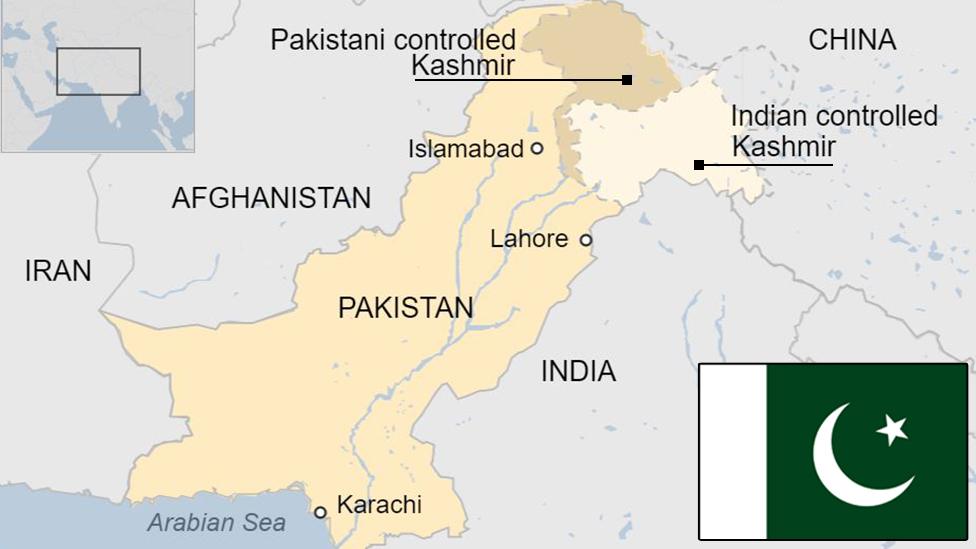Pakistan 'honour' killing: Why clerics' call may fall on deaf ears
- Published
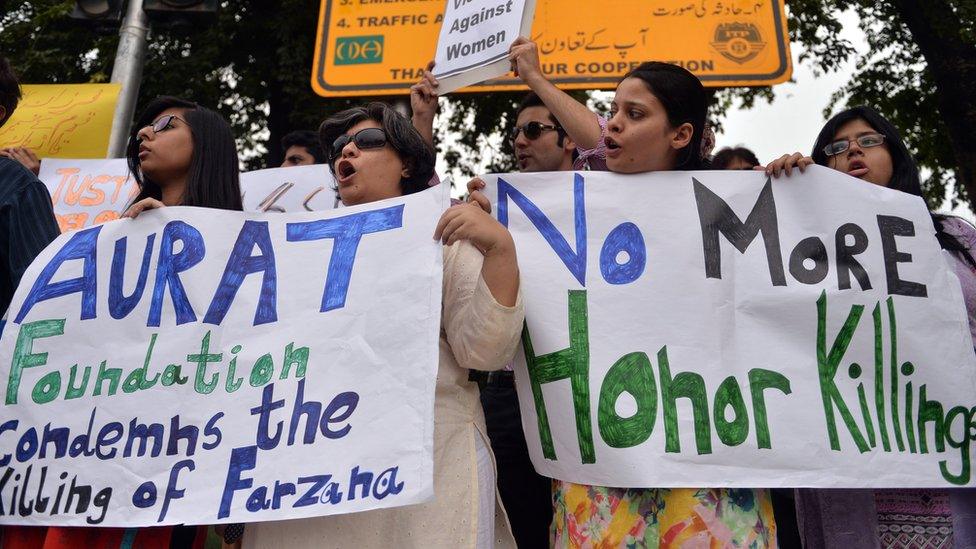
The 2014 killing of Farzana Parveen by her relatives in Punjab triggered protests
The Council of Islamic Ideology (CII) in Pakistan has declared that killing in the name of family honour is un-Islamic and against the law. The group, which advises the government on religious aspects of law and society, issued its statement after a recent spate of killings shocked many in Pakistan and around the world. Will anyone listen?
What did the clerics say?
The Council of Islamic Ideology - which came under fire last month for suggesting husbands should be allowed to lightly beat their wives - said it had declared such killings to be un-Islamic in 1999, and made clear it was restating its position following a spate of killings in recent weeks.
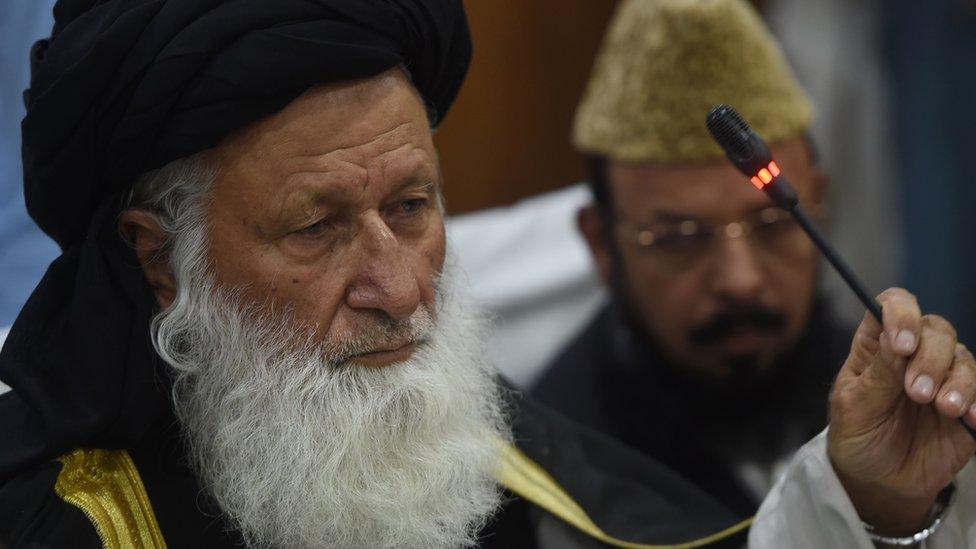
Council of Islamic Ideology chairman Maulana Muhammad Khan Sherani speaks to journalists in Islamabad
A working group formed to look into the matter has recommended that while "adultery, obscenity and immodesty are grave sins and Islam prescribes harsh punishments for them, it does not allow an individual to act in an extra-judicial manner".
The CII said it was up to the courts to declare an individual guilty or innocent.
Its statement says that anyone guilty of such killing should be tried under a range of existing laws that cover different categories of murder. These laws, it says, are in conformity with Islamic teachings and therefore no new legislation is required.
Why now?
There have been at least four cases in the past month in which a woman was killed in a marital dispute. It is alleged the murders were carried out by family members or relatives of a rejected suitor, either on their own or following the verdict of local elders.
Last week a young woman, Zeenat Rafiq, was allegedly burnt to death in Lahore by her mother for marrying without family consent, triggering widespread anger.
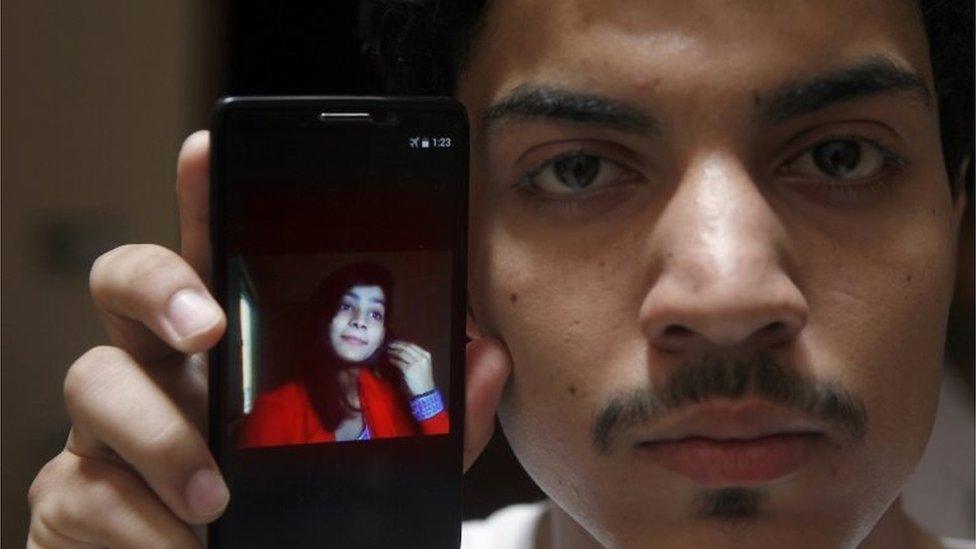
Hassan Khan said his wife Zeenat Rafiq's family had "lured her back", promising a wedding reception
A week earlier school teacher Maria Sadaqat was set on fire in Murree near Islamabad for refusing a marriage proposal. She died of her injuries.
And last month a teenager was burnt to death near Abbottabad on the orders of village elders because she helped a female friend to elope, police said.
On Sunday, ahead of the CII statement, a group of Pakistani clerics issued a fatwa, or religious ruling, declaring honour killing to be against the teaching of Islam.
How bad is Pakistan's honour killing problem?
According to the independent Human Rights Commission of Pakistan (HRCP), external, at least 109 people were killed for "honour" during just four months, between January and April this year.
Human rights monitors say the incidence of such killings is on the rise. The HRCP reported 1,100 honour killing incidents in 2015, 1,105 in 2014 and 869 in 2013.
Increased media coverage may be one reason but changing lifestyles amid continuing social conservatism are also a major factor.
For example, women's education and their exposure to changing lifestyles and fashion in the media have been growing. Mobile phones and the internet have also empowered many women.
But social norms continue to prevent them from practising this newfound liberation.
Who carries out honour killings?
In the overwhelming majority of cases, the killers are often close relatives - a brother, father, cousin, even a mother, or a maternal or paternal uncle.
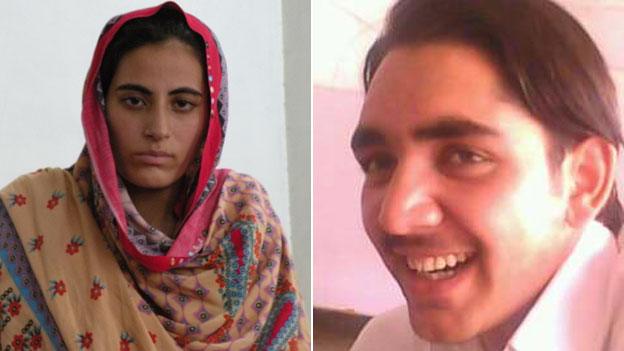
Rukhsana Bibi eloped with Mohammad Yunus - he was killed while she survived
Most killings take place after the woman concerned is accused of having a pre-marital or extra-marital affair, marries a man of her choice despite her family's opposition, or refuses a marriage proposal brought by her family.
What are the legal obstacles to prosecutions?
Since honour killings are largely a family affair, most cases go unreported - so police rarely make arrests.
Even in the reported cases the families involved often reach an out-of-court settlement and the alleged killers walk free.
Under a 1980s law the next-of-kin of the victim have the right to pardon the person accused of killing them.
Attempts to introduce stricter laws have often been abandoned following opposition from religious lobbyists.
A law passed by the Punjab parliament in February which criminalised all forms of violence against women has still not been enacted after the CII said it violated Islamic teachings.
Are there cultural reasons too?
There is the sanction of society. Honour killing is a function of culture, and so it cuts across religions.
One example is the recent murder of a Christian teenage girl in Sialkot, external. The police said that Anum Masih wanted to marry a Christian neighbour but her family was opposed to the proposal.
On Sunday morning, her 23-year-old brother, Saqib Masih, smashed her head with a log, police said.
In an article published in Dawn newspaper, external, Lahore-based intellectual Mushtaq Soofi explained the phenomenon by linking it to the origin of private property and the concomitant evolution of modern family in societies that have not progressed beyond feudal ethics.
"Once consigned to the household, a woman was gradually reduced to a piece of property," he wrote. "And property if left unguarded is taken by someone else."
This, he said, was also "the secret of endogamous marriage".
Women also needed to be "monitored and controlled" because of their reproductive power.
"She is considered a machine that makes men," Mushtaq Soofi added. "If she goes off with a man not accepted by her family, she in fact creates the male competitors who would challenge the family muscle."
- Published8 June 2016
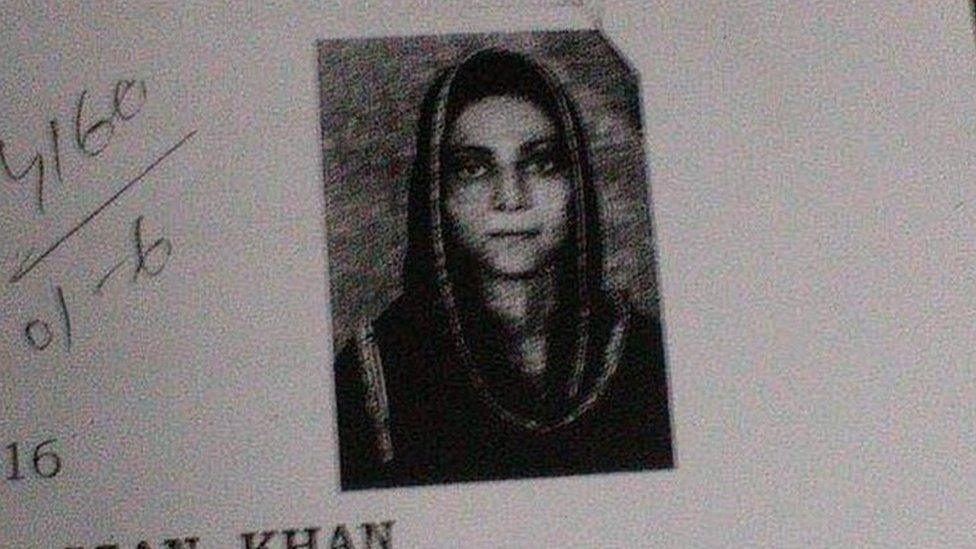
- Published31 May 2016

- Published15 March 2024
